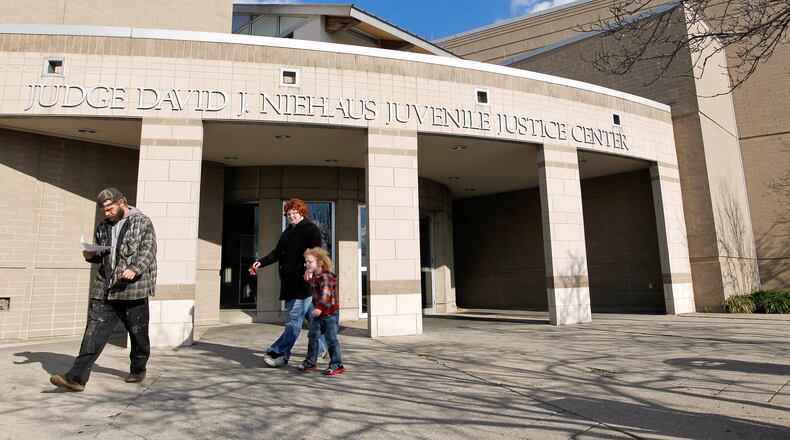The latest figures from the Butler County coroner show there have been 96 drug overdoses through April out of 175 deaths investigated. There were 192 overdose deaths in 2016. Coroner Dr. Lisa Mannix said records are being broken.
“The disturbing trend of overdose deaths involving fentanyl in Butler County continues at an alarming rate,” said Mannix. “I released these statistics later than I might normally have to include the month of April which had 30 total overdose deaths. The Butler County coroner’s office has previously never seen that many deaths of any kind in a single month.”
Magistrate Pat Wilkerson is presiding over the family drug court and will also handle the juvenile drug court when it comes online next year. She said the court program — eventually it will have the capacity to help 45 to 60 adult addicts at a time — is designed to help parents with the most serious addictions.
“The person has to have been assessed to require either intensive outpatient treatment or residential treatment,” she said. “Drug courts, with all the research that’s been done nationwide and internationally at this point, are best suited for high risk, high needs individuals. So somebody that’s only recommended for outpatient treatment probably doesn’t need us and our resources are better spent on those that do.”
Because the court is new there isn’t a docket yet, but the drug court team — comprised of people like addiction recovery providers, a defense attorney, Wilkerson’s drug court coordinator and others — will meet today to evaluate if two people Children Services recommended for the program will be accepted. Wilkerson said there are about three others waiting to be evaluated.
Juvenile Court Administrator Rob Clevenger said the plan is to run the one docket — 15 to 20 cases — this year, but they have asked the county commissioners for $95,661 next year to hire a part-time magistrate — to help with Wilkerson’s full-time docket at juvenile court — and pay the program coordinator full-time.
Clevenger said he is confident they will be successful in getting some federal and state grants, but they needed to make the commissioners aware of the new programs and cost attached.
“What we said to the commissioners in our request is we are making the request because we think the need is there,” Clevenger said. “But while that’s going on we’re also going to be pursuing state and federal funding, with hope of reducing that burden on the local general fund.”
HOW WE GOT HERE: Officials tell commissioners family drug court essential
The plan is to add two more family drug court dockets and the new juvenile drug court next year. He said when they saw the coroner’s overdose statistics they started examining their juvenile court cases and saw the number of kids using heroin is increasing.
They took snapshots over time, and a few years ago, of the 1,500 children under court supervision there were only 10 identified as heroin users. More recently they had 50 kids in the juvenile detention center and six were users.
“The offenses their committing or their behavior is related to the fact that they are using heroin, and that really is a concern to us,” he said. “So what the juvenile drug court docket is about is a response to really getting out in front of that issue.”
Interim JFS Executive Director Bill Morrison has said the program is about more than just court supervision. Drug court participants will have regular meetings with Wilkerson, frequent drug testing, wrap around programs to foster success and access to drug addiction treatment services.
“One of the things that’s true of addiction is the addiction itself is a relationship and there’s almost like there is an affair going on in the family that breaks down the normal bonding and attachment that would occur between parents and children, so you have to kind of reconstruct those relationships…,” Morrison said of the court program. “I think it’s taking an honest eyes wide open approach to the problem, that will help more families succeed.”
Wilkerson said the program generally spans 12 to 14 months but 18 months isn’t unheard of. During the first two phases of the program weekly contact is required at the Historic Courthouse where she is holding court.
About the Author
